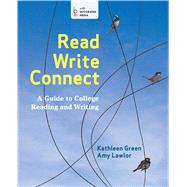Throughout, the text demonstrates that academic processes are recursive—for example, drafting is not a phase or stage a writer finishes or completes; drafting continues as the writer revises, based on reading and reflection. The structure of the text reflects this recursivity: as students move from the early chapters to later chapters, they reinforce and expand upon earlier learning, digging deeper into the material and their own ideas and building confidence along the way.








